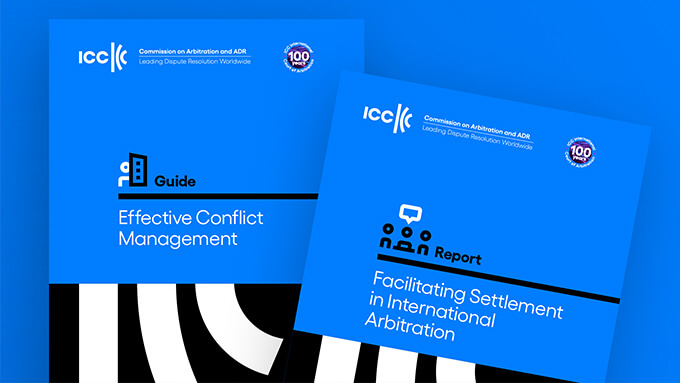Action for Annulment of Objection before Arbitration
Introduction
Action for annulment of objection is regulated under Article 67 of the Bankruptcy and Enforcement Law No. 2004 (“Law No. 2004”). According to this Article, “The creditor whose execution proceeding is interrupted by the debtor’s objection may file an action for annulment of objection within one year as of the receipt of such objection and may ask the court to examine the case under general rules of law.” The main purpose of such action is to continue the execution proceedings that have been interrupted by the debtor’s objection. Since this action for annulment of objection will be heard under the general rules of law, the decision rendered after such adjudication shall be deemed final and binding in terms of substantive law. That being said, scholars and the court decisions continue to debate whether this action for annulment of objection is to be heard before an arbitrator or an arbitral tribunal.
Scholarly Opinions and Jurisprudence on Arbitral Tribunals Hearing Action for Annulment of Objection
Arbitration agreement is an agreement where real or legal persons leave the arbitrator or arbitral tribunal to settle their existing or future disputes that are not related to the public order[1]. The parties may decide freely on the rules applicable to the procedure and merits of the dispute in the most suitable manner for them, and depending on the nature of the dispute itself. When the parties, however, show intent to leave arbitrators to settle these disputes, does this mean that they have opted out from all possible remedies that states offer under their jurisdictional powers?
There is no explicit provision under Law No. 2004, former Code of Civil Procedure, Code of Civil Procedure in effect, and International Arbitration Act (“IAA”) as to how an arbitration agreement might affect the execution proceedings, particularly an execution proceeding without judgment, which is a proceeding exclusive to the Turkish and Swiss legal systems[2]. There is also no unified opinion amongst scholars and chambers of the Court of Cassation.
The scholars who suggest that arbitral tribunals are not entitled to hear an action for annulment of objection base their opinions on the following:
- Action for annulment of objection is a declaratory judgment[3] concerning enforcement law, and its purpose is to solely repeal the objection and continue with the execution proceedings. Therefore, this action cannot be heard before an arbitral tribunal.
- It is not logical to assume that the arbitrators can render final decisions, which are binding on the execution offices, where it is explicitly stipulated under Article 6/2 of the IAA that the arbitrators cannot bind the execution offices with their provisional attachment decisions[4].
- When the parties agree upon resolving their disputes before an arbitral tribunal by excluding the state involving, it should not just exclude the courts, but should exclude state’s judicial organization in general. Execution offices are also part of the state’s judicial organization and thus, initiating an execution proceeding, rather than requesting for arbitration is contrary to the arbitration agreement[5].
Scholars who suggest that an action for annulment of objection can be heard before an arbitral tribunal assert the following reasons:
- The inference suggesting that Article 6/2 of the IAA is an obstacle for arbitral tribunals to hear an action for annulment of objection is not accurate when the arbitrators are, in fact, competent to bind the execution offices with their final arbitral awards[6].
- Parties may initiate execution proceedings without judgment since these proceedings are not part of the court’s adjudication process[7].
- The legal benefit of the parties is not suffered when the arbitrators hear the action for annulment of objection or rule on bad faith compensation[8].
Court of Cassation also held different decisions on this matter:
On 14 December 2000, the 19th Chamber of the Court of Cassation held in its decision No. 2000/5610 E. – 2000/8669 K. that the action for annulment of objection cannot be heard by the arbitrators, as follows:
“The defendant argues that the plaintiff cannot initiate an execution proceeding without judgment where they have a binding agreement stipulating that all disputes will be resolved by arbitration. However, in such a case, the plaintiff cannot ask for an annulment of objection from the arbitrators. Taking the principle of procedural economy into the consideration, it should be possible for the arbitral tribunal to see this dispute as a personal claim to collect debt under the general rules of law.”
However, the 15th Chamber of the Court of Cassation held on 3 April 2008 that arbitrators and arbitral tribunals are entitled to hear an action for annulment of objection, in its decision of 2008/262 E. – 2006/2138 K.:
“The arbitral tribunal decided that they are not competent to hear this case as an action for annulment of objection and to decide on bad faith compensation and therefore, handled the case before them as a personal claim to collect debt. According to the continuous practice of our Chamber, arbitrators are competent to hear an action for annulment of objection and, accordingly, rule in favor of bad faith compensation. Therefore, the arbitral tribunal erred in handling this case as a personal claim.”
Conclusion
There is no explicit regulation as to how the existence of a valid arbitration agreement would affect an execution proceeding without judgment. There is also no unified opinion amongst scholars and chambers of the Court of Cassation. While some scholars and court decisions suggest that it is possible to handle an action for annulment of objection at arbitration, others assert that arbitrators are not competent to decide on this particular matter. It is important for the Court of Cassation to issue a unified opinion, since this issue has direct impact on the legal practice in Turkey.
[1] Decision of General Assembly on the Unification of Judgments of 1993/4 E. 1994/1 K., 28.01.1994 www.kazanci.com (Access date: December 2019).
[2] Yılmaz, Ejder: Tahkimde İtirazın İptali Davası ve Tahkime Elverişlilik Kuralı, p. 540, referring to Kuru, Baki: Hukuk Muhakemeleri Usulü, V. 6, İstanbul 2001, p. 5981, fn. 91.
[3] Çağa, Tahir: Ödeme Emrine İtirazın İptaline Dair, Batider 1976/VIII/3, p. 21-31; Muşul, Timuçin: İcra ve İflas Hukuku Esasları, 5. Bası, Ankara 2015, p. 254
[4] Yeşilırmak, Ali: Geçerli Bir Tahkim Anlaşmasının Varlığına Rağmen Genel Haciz Yoluyla Takip Yapılabilir mi?, Türkiye Barolar Birliği Dergisi, 2011 (96), p. 219.
[5] Yılmaz, p. 540-541.
[6] Yeşilırmak, p. 220.
[7] Kuru, p. 5980; Kuru, Baki: İcra ve İflâs Hukuku El Kitabı, Ankara, 2013, p. 253-254; Pekcanıtez/Atalay/Sungurtekin Özkan/Özekes: İcra ve İflâs Hukuku, Ankara, 2012, p. 199-200; Yeşilırmak, p. 225; Özkan, Yönel: İcra İflâs Hukukunda İtirazın İptali Davası, Ankara, 2004, p. 121.
[8] Yeşilırmak, p. 219.
All rights of this article are reserved. This article may not be used, reproduced, copied, published, distributed, or otherwise disseminated without quotation or Erdem & Erdem Law Firm's written consent. Any content created without citing the resource or Erdem & Erdem Law Firm’s written consent is regularly tracked, and legal action will be taken in case of violation.
Other Contents

Emergency arbitration addresses the need for interim protection before the arbitral tribunal is constituted in institutional arbitrations. Arbitral institutions establish short timeframes to ensure parties can obtain interim relief quickly. For example, the International Chamber of Commerce (“ICC”) requires that the emergency...

International arbitration remains the preferred mechanism for resolving complex cross-border disputes. Yet despite its advantages—neutrality, enforceability, flexibility—arbitration is frequently criticized for being too slow, too expensive, and too procedurally heavy. Often, parties proceed through hearings and...

For arbitral awards rendered in international commercial arbitration to produce legal effects in foreign jurisdictions, they must be subjected to proceedings for “recognition” and “enforcement.” This process is governed by the New York Convention as well as by the provisions of the Law on Private International Law...

Arbitrability, the determination of whether a specific subject matter can be resolved through arbitration, constitutes a fundamental aspect of arbitration within the scope of international commercial dispute resolution. This concept draws a delicate balance between party autonomy—a fundamental principle of arbitration...

The recognition, enforcement, and annulment of foreign court and arbitral awards in Türkiye are processes in which public policy emerges as one of the most critical criteria for review, both in theory and in practice. The Court of Cassation decisions determine the direction of case law regarding the scope and...

As is well known, the action for annulment of objection is a special type of lawsuit regulated under Article 67 of the Turkish Execution and Bankruptcy Law No. 2004 (“EBL”). The primary objective of this action is to nullify a debtor’s objection to execution proceedings. Despite its procedural function of facilitating...

On 16 December 2024, the London Court of International Arbitration (“LCIA”) released its third batch of challenge decisions covering the period from 22 July 2017 to 31 December 2022. The LCIA has also issued a detailed commentary that identifies key legal themes and analytical trends, offering practitioners...

The International Chamber of Commerce (“ICC”) has published its report on the dispute resolution statistics for 2023 (“Report”) , shedding light on the evolving landscape of international arbitration...

Syndicated loans undoubtedly hold a significant position among global financing models. In 2023 alone, 3,655 syndicated loans were provided to companies in the US, with their total value reaching USD 2.4 trillion...

Preliminary attachment refers to the temporary seizure of a debtor's assets to secure a creditor's claim. While it serves as a vital instrument for safeguarding the rights of creditors, it is subject to specific and stringent conditions under Turkish law to prevent any potential misuse...

One of the most important reasons for parties to choose arbitration is the opportunity to freely choose their arbitrators. This freedom granted to the parties also distinguishes arbitration from proceedings before state courts, where the parties are deprived of the power to determine the judges who will conduct the...

The 6th Civil Chamber of the Court of Cassation ruled on October 12, 2022, that national courts have jurisdiction over objections to provisional measures in international arbitration disputes...

The declaration of intent to resolve disputes through arbitration is the fundamental constituent element of an arbitration agreement. To speak of a valid arbitration agreement, the parties' intention to arbitrate must emerge in a way that leaves no room for dispute...

In the wake of the evolving dynamics of commercial transactions, the Netherlands Arbitration Institute Foundation (NAI) announced new arbitration rules . 2024 NAI Arbitration Rules are in force as of 1 March 2024 and will be applicable on proceedings filed on or after this date...

With the global shift to online activities, domain names play a crucial role in identifying businesses. It is more common than ever for a domain name to be registered that is confusingly similar to a trademark or service mark...

The ICC Commission on Arbitration and ADR (“Commission”) published a new guide and report with the aim to increase awareness on alternative dispute resolution (“ADR”) mechanisms to prevent disputes and strengthen the relationship between all stakeholders.The Guide on Effective Conflict Management...

Mergers and Acquisitions (“M&A”) are restructuring of companies or assets through various types of financial transactions, such as mergers, acquisitions, purchase of assets, or management acquisitions. This Newsletter article covers M&A disputes being solved before arbitral tribunals.

In the context of arbitration practice, the principle of revision au fond means that the courts can not examine the merits of a dispute when reviewing an arbitral award. This principle is most commonly encountered in set aside and enforcement proceedings. An arbitral award is evidence of the parties’ willingness...

Under Turkish law, parties may agree on the settlement of disputes that have arisen or may arise, regarding the rights that they can freely dispose of, by arbitration. However, disputes which are not subject to the will of parties, such as the disputes relating to in rem rights of immovables, bankruptcy law...

On 4 September 2020, a research project “Does a Right to a Physical Hearing Exist in International Arbitration?” was launched by an International Council for Commercial Arbitration (“ICCA”) taskforce. Due to the Covid-19 pandemic, many arbitration hearings were held online. Many institutional rules...

Dubai International Arbitration Center amended its Arbitration Rules on 25 February 2022. The 2022 Arbitration Rules were published on 2 March 2022 and came into effect on 21 March 2022. The Rules will be applied to arbitrations that are filed after 21 March 2022; unless parties agree otherwise...

In the aftermath of the Achmea decision, controversies on intra-EU arbitrations continue. Most recently, the Paris Court of Appeal has annulled two arbitral awards rendered against Poland. Meanwhile, the Higher Regional Court of Berlin has refused to declare that an Irish investor’s ICSID claim...


Under Turkish law, the legal remedy that can be applied against arbitral awards is an annulment action. Law on International Arbitration No. 4686 (“IAL”) finds its application area in arbitration proceedings where Turkey is the place of arbitration...

It is well known that following a decision of the Court of Justice of the European Union, problems arose related to arbitration of intra-EU disputes, and particularly arbitration under the Energy Charter Treaty...

Arbitration in corporate law contains controversial elements in many respects, especially the issue of arbitrability. Even in legal systems where these disputes are considered to be arbitrable, uncertainties remain on whether an arbitration clause can be included in the articles of...





Arbitration has benifited from a great increase in the use of technology which has directly effected the conduct of proceedings. More particularly, with digitalization, the way that we conduct arbitration proceedings has been changed to reflect the current needs of parties, with an aim of increasing time...
































































